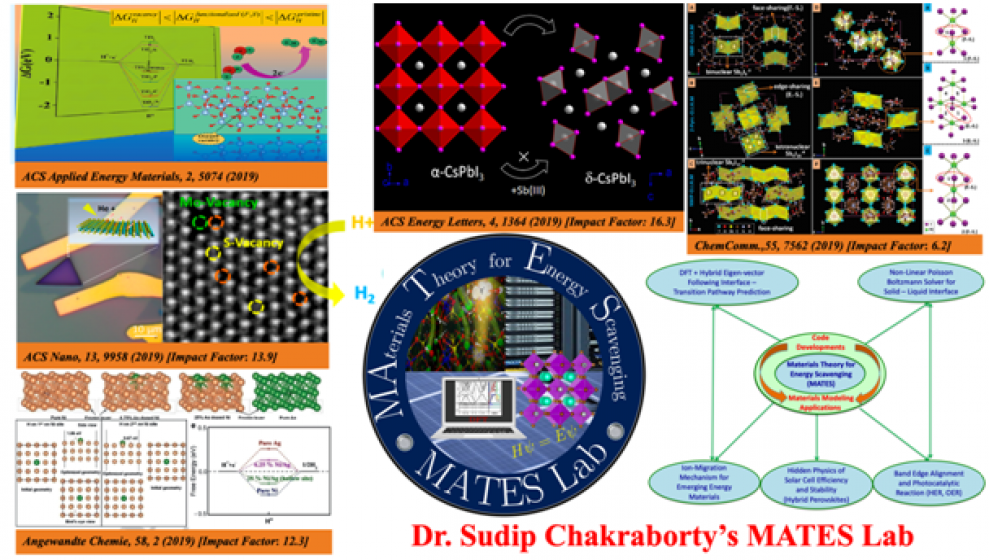भारतीय प्रौद्योगिकी संस्थान इंदौर Indian Institute of Technology Indore
IIT Indore
भारतीय प्रौद्योगिकी संस्थान इंदौर Indian Institute of Technology Indore
IIT Indore

Research Highlights from Materials Theory for Energy Scavenging (MATES) Lab
Department of Physics, Indian Institute of Technology Indore
The scientific thrust of our research group Materials Theory for Energy Scavenging (MATES) Lab embedded in Discipline of Physics, Indian Institute of Technology (IIT) Indore is revolving around the following three prime research thrusts:
1. Development and Application of Computational Condensed Matter Physics to envisage accurate Transition Pathways and Solid-Liquid Interfaces for Energy and Meta-materials.
2. High Throughput Screening based Rational Design of Hybrid Perovskites and 2D Materials for Solar Cells and Quantum Computing.
3. High Pressure Driven Phase Transformation, Rashba Dresselhaus and Excitonic Effect.
In a recent study, we have successfully envisaged for the first time Single Atomic Vacancy Catalyst in ultrathin monolayer [ACS Nano, 13, 9958 (2019)], which has been a successful culmination of experimental validation of our theoretical prediction. For the quest of lead free non-toxic photovoltaic materials, metal-site doping with various ions in α-CsPbI3 has been proven to be a potential approach in bringing phase stability to these nanocrystals [ACS Energy Letters, 4, 1364 (2019)]. Recently, we have also explored a heterogeneous alloy catalyst with electrochemical hydrogen evolution activity similar to expensive platinum [Angewandte Chemie, 58, 2 (2019)]. Charge transfer and photoluminescence quenching between new structurally diverse carbonyl functional group-based iodoantimonate organic–inorganic hybrid perovskites are investigated for potential applications [ChemComm, 55, 7562 (2019)]. We have also explored bifunctional catalytic activity on novel 2D ultrathin TiO2 monolayer based on DFT based reaction coordinate mapping [ACS Applied Energy Materials, 2, 5074 (2019)]. For more information about the recent publications of MATES Lab, stay tune with our research webpage: https://sudiphys.wixsite.com/ceslab-sudip/research-publications
 Lab.png)